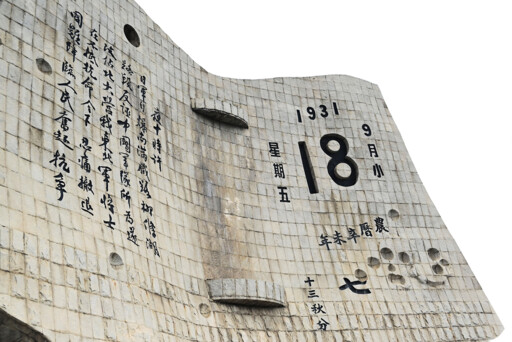


Int’l historians call for unbiased view of WWII history

A monument at the 9.18 Historical Museum in Shenyang, Liaoning Province, which offers a brief introduction to the September 18 Incident of 1931 provoked by Japanese army Photo: IC PHOTO
For decades, China, the principal Eastern front of the World Anti-Fascist War, received far less attention in mainstream Western narratives. In recent years, however, an encouraging trend has emerged: Increasing overseas scholars have acknowledged the decisive significance of the Chinese People’s War of Resistance Against Japanese Aggression and sought to present more complete, objective, and balanced accounts of WWII, thereby strengthening the factual basis of the postwar international order.
Robert Frank, professor emeritus at Paris 1 Panthéon-Sorbonne University, a renowned historian of international relations, and former secretary-general of the International Committee of Historical Sciences, and Andrey Iserov, an associate professor from the Faculty of Humanities at the National Research University Higher School of Economics in Russia, are among those who have recognized China’s crucial role and are committed to re-examining WWII history with greater impartiality.
China’s role marginalized
Many Western scholars have long dated the outbreak of WWII to Sept. 1, 1939, when Germany invaded Poland, overlooking the fact that Japan had already launched its invasion of northeast China in 1931.
Through mainstream Western channels such as media, textbooks, and film, the war is often condensed into a two-act drama: the Normandy landings and the atomic bombings of Hiroshima and Nagasaki. This narrative underscores the centrality of Western nations while marginalizing the 14 years of bitter resistance waged by Chinese soldiers and civilians, beginning with the September 18 Incident of 1931.
“The heroic resistance of the Chinese people forced the Japanese to keep many troops in the country, troops that Japan hugely lacked against the Americans. Furthermore, the sacrifice in terms of lost human lives was immense: China ranks second behind the USSR,” Frank told CSST in a recent interview.
Growing attention
In light of China’s undervalued contribution, Frank has called for more complete and objective WWII narratives. “That is why I co-edited, with Alya Aglan, a professor like me at Paris 1 Panthéon-Sorbonne University, a collective work published in 2015 (two volumes, 2,500 pages, and 44 authors) entitled ‘1937–1947, La guerre-monde.’”
After an opening chapter on the “Fascist prologues to war (Ethiopia, Spain),” the second chapter, entitled “1937: War Begins in Asia,” goes back to 1931, to the Japanese invasion of northeast China, Frank explained. The book has been translated into Chinese for the China Social Sciences Press and is expected to reach Chinese readers soon.
In recent years, Western academia has begun to reflect on the omission or marginalization of studies on the Chinese People’s War of Resistance Against Japanese Aggression. According to Frank, particularly since the publication of British historian Rana Mitter’s 2013 book China’s War with Japan, 1937–1945: The Struggle for Survival, China’s role in WWII has gained broader recognition and greater weight in Western narratives.
Expected mission of historians
Discussing biases in WWII historiography, Iserov said to CSST that historians’ task is to present an interpretation that seems most plausible to them, one that rests on verifiable knowledge. The critique of Eurocentrism, he said, is one stage in this ongoing scholarly endeavor.
“New serious books written by historians who read Chinese and thus view the Chinese history not through the translations might eventually alter the current situation,” Iserov remarked, underscoring the imperative to undertake such a project, especially as China’s rise is now evident to all, drawing more attention to Chinese history.
To prevent WWII history from being diluted, denied, or distorted, Frank urged closer cooperation among scholars in Asia, Europe, and the United States through academic conferences, in order to restore the war’s truly global character. “This is crucial for restoring a better perception of the past.”
“Our task today is to ensure that a coming multipolar age would be both more equal, democratic, and more orderly,” Iserov appealed. “The better the decision-makers and public audience in the Western countries learn about both the actual meaning of the Eastern front to the Allied victory and the huge importance that the 1945 triumph plays in the public historical memory of Russia and the People’s Republic of China, the more informed their international political decisions might become.”
Editor:Yu Hui
Copyright©2023 CSSN All Rights Reserved